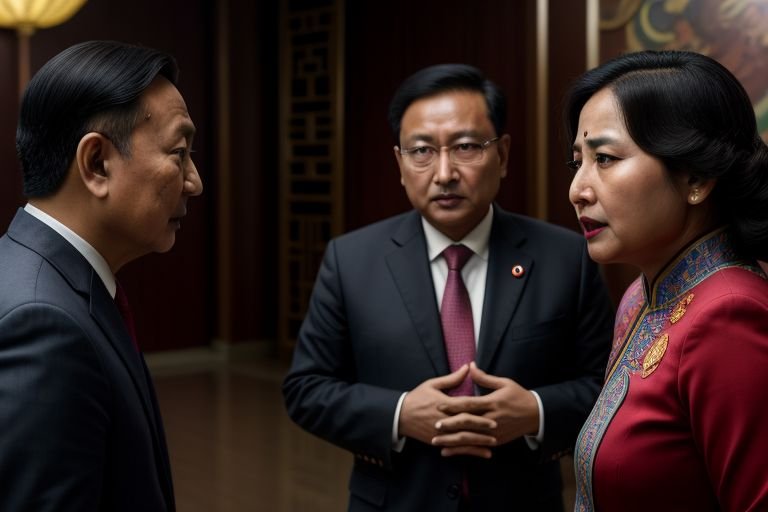
Nepal Journalist Faces Backlash From Chinese Ambassador
A social media outrage has now ensued in Nepal following Chinese Ambassador Chen Song who called on a local reporter to apologize for a post on X or what was formerly known as Twitter. It has also generated controversy on the right conduct of diplomacy and freedom of speech in the country.
The controversy started when Gajendra Budhathoki, the editor of the Taksar Magazine blog on X, accused Nepal of taking a loan from China with a 5% interest on the construction of Pokhara Regional International Airport. This claim was inasmuch as this publication affirms the interest rate was pegged at two percent as per official records.
Chen’s image was also offended by the post of Budhathoki and called for an apology on the social site. The Chinese envoy angrily wrote, “We request your apology to America and to whosoever you purport to represent.” He went on to taunt the journalist, asking him, “If you have the document, why don’t you publish it?” If you don’t and need time to establish that proof, then the intention is what kind of intention? “What those people are doing is telling lies first, then if the public gets angry, they sit and watch for some time, then they repeat the lies.”
But then Budhathoki reiterated and said, when the ambassador threatened, “Do not threaten me. Know your boundaries, Chen. I have evidence from the Nepal Government.”
– It is really necessary that we should and will have to have concrete evidence In support of our crossed allegations. The journalist also said that the verbal attack he received from the Chinese envoy together with his supporters on his social media comments has left him questioning his security.
The event has been criticised by different people conning the society such as journalists and diplomats in Nepal. Some have considered the ambassador actions as a breach of protocol, and likely interfering with freedom of speech.
Speaking to www.myrepublica.com, Madhu Raman Acharya, a former foreign secretary and ambassador of Nepal, said about the incident, “It is very unlike a foreign ambassador to demand an apology from a host country journalist because of a Facebook status update.” He could counter-argue or seek clarification from the government. The foreign ministry must caution the ambassador about the meaning of `public diplomacy’ and the dangers of ‘direct action.’
Former editor of The Himalayan Times, Ajaya Bhadra Khanal, also expressed discontent about Ambassador Chen’s approach, saying that Envo ‘could always have told the information was not correct instead of going after @gbudhathoki and threatening him. It only exposed the Chinese ambassador and his feisty disposition of his mindset.
This is not the first time when Ambassador Chen has become involved in social media scandal in Nepal. Before that, he targeted the nation in July after coming up with a joke concerning a fatal accident of a certain bus. When reposting a news article on a missing magnet that was brought to search for a lost bus, Chen said in his post, “Find the magnet then.” They said this in very bad taste bearing in mind that 62 passengers were reported missing in the accident.
The latest controversy has sparked debate on the responsibilities and functions of social networks in diplomacy and the limits for diplomats in social networks. It also has brought controversies on its influence to Nepals’ financial relation towards China and regarding information rights of the people.
Given the circumstances, the lovers of political change in Nepal seek to propose a more peaceful way of such conflicts. They stress the need to uphold statecraft etiquette and, at the same time, uphold the freedom of media to explain and analyze issues in society.
Something, This proves the state of affairs that it is sometimes very hard to demarcate the diplomatic relationship while, on the other hand, preserving the fundamental rights of freedom of speech of the press and the public. It also provides insight into how social networks are affecting public discussion and diplomacy in the modern world.
When it comes to these issues, the government of Nepal has been in a difficult position on how to Go fittings the concerns that has be raised by the Chinese embassy as well as the local media station. The result of this conflict may lead to grave consequences for Nepal- China relation and Nepals stand on Press Freedom.


